open science
See the following -
Four PLOS authors receive 2016 Breakthrough Prize in Life Sciences
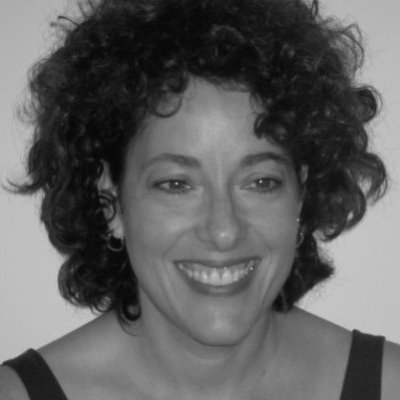 Through the Breakthrough Prize – initiated and funded in 2012 by Bay Area biotechnology innovators, social media venture capitalists and successful internet entrepreneurs – outstanding scientists working in the fields of life sciences, fundamental physics and mathematics receive recognition, money and a bit of glamour. This year, four of the five scientists awarded a $3 million Breakthrough Prize in Life Sciences chose to publish some of their work in Open Access journals over the course of their careers. In so doing, Edward S. Boyden, Karl Deisseroth, John Hardy and Svante Pääbo ensure their research is available for distribution, discovery and reuse, introducing opportunities for all scientists to build on their discoveries...
Through the Breakthrough Prize – initiated and funded in 2012 by Bay Area biotechnology innovators, social media venture capitalists and successful internet entrepreneurs – outstanding scientists working in the fields of life sciences, fundamental physics and mathematics receive recognition, money and a bit of glamour. This year, four of the five scientists awarded a $3 million Breakthrough Prize in Life Sciences chose to publish some of their work in Open Access journals over the course of their careers. In so doing, Edward S. Boyden, Karl Deisseroth, John Hardy and Svante Pääbo ensure their research is available for distribution, discovery and reuse, introducing opportunities for all scientists to build on their discoveries...
- Login to post comments
Free Availability Of Knowledge – Open Access At DLR
International Open Access Week will be held from 21 to 27 October 2013. Universities, libraries, research centres and government institutions around the world will join in events and activities to demonstrate the benefits and advantages of open access, the principle of unrestricted availability of scientific results, and to promote experience, inspiration and participation. [...] Read More »
- Login to post comments
From Open Source to Open Science
Kevin Lustig explores open science and how it can be used to increase access to scientific data. Kevin also looks at how pharmaceutical companies, such as Pfizer and Merck, are promoting their own brand of open science. Read More »
- Login to post comments
Frontiers Is Featured In The Prestigious Nature Magazine
Frontiers, a community driven open-access publisher and research networking platform for scientists, is featured on the inside cover of this week's Nature, with endorsements from Nobel laureates and other leading researchers. [...] Read More »
- Login to post comments
Funds Crunch Hits India's Drug Development Project
Lack of funds is threatening the smooth progress of India’s unique Open Source Drug Discovery (OSDD) project, a first of its kind attempt to develop drugs for neglected diseases, when it is entering a crucial phase of research. Prime Minister Manmohan Singh had in February announced that OSDD, the pet project of the Council of Scientific and Industrial Research (CSIR), had identified a lead (potential drug candidate) for tuberculosis (TB).
- Login to post comments
Goodbye Elsevier, Goodbye Tet Lett Etc
I’ve decided to stop refereeing for, and publishing in, Elsevier journals. I was just asked to review for Tet Lett again, and sent notice that I’m out: Read More »
- Login to post comments
Half of the World’s Languages Are Dying. Should We Save Them?
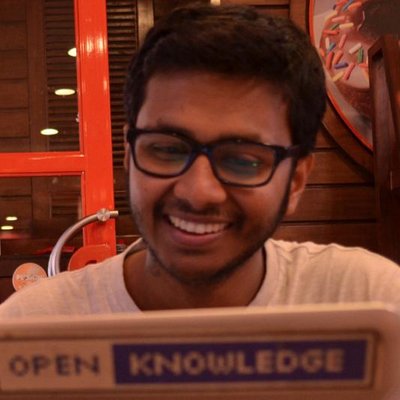 There are currently around 7,000 languages being used today, with one language dying every two weeks. UNESCO says that half of the world's languages may vanish in a century's time. And, in my home country of India, 220 languages have died in the last 50 years and 197 languages are endangered. Open science is advancing scientific research by enabling individuals and organizations to collaborate and exchange knowledge that improves each other’s work. One area that could use this kind of help is native languages around the world...
There are currently around 7,000 languages being used today, with one language dying every two weeks. UNESCO says that half of the world's languages may vanish in a century's time. And, in my home country of India, 220 languages have died in the last 50 years and 197 languages are endangered. Open science is advancing scientific research by enabling individuals and organizations to collaborate and exchange knowledge that improves each other’s work. One area that could use this kind of help is native languages around the world...
- Login to post comments
Harvard Medical School, Kiel University of Applied Sciences and others are using Nextcloud in the response to COVID-19
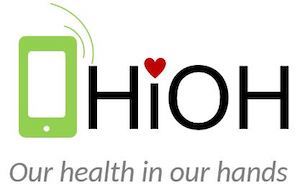 Nextcloud Hub is used in dozens of universities, hospitals, and medical institutes in various ways, aiding in fighting the pandemic. The DICOM viewer app for Nextcloud in particular is used in Brazil in the fight against COVID-19. At the Kiel University of Applied Sciences Nextcloud is used in the development of bluetooth measurement algorithms from the OHIOH.de research team. This is a research project using machine learning and AI to improve the accuracy of Bluetooth-based COVID-19 tracking apps where information is collected through "Bluetooth". The application focuses on research topics to warn and help with required actions in fighting and minimizing the spread of COVID-19.
Nextcloud Hub is used in dozens of universities, hospitals, and medical institutes in various ways, aiding in fighting the pandemic. The DICOM viewer app for Nextcloud in particular is used in Brazil in the fight against COVID-19. At the Kiel University of Applied Sciences Nextcloud is used in the development of bluetooth measurement algorithms from the OHIOH.de research team. This is a research project using machine learning and AI to improve the accuracy of Bluetooth-based COVID-19 tracking apps where information is collected through "Bluetooth". The application focuses on research topics to warn and help with required actions in fighting and minimizing the spread of COVID-19.
- Login to post comments
Help Us Integrate GitLab and the Open Science Framework
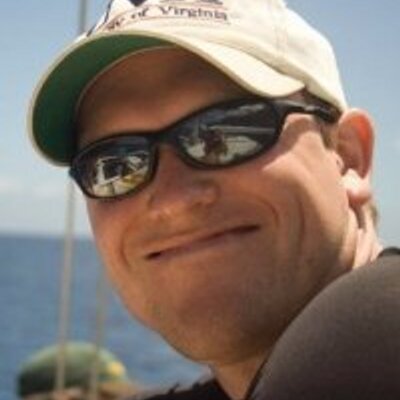 For years, the benefits of open source code development have been self-evident to the software development community: Transparency leads to collaboration, and collaboration leads to better and more secure code. The scientific community is just starting to understand these benefits. The growing open science movement is using these same lessons to make the scientific process more transparent, so that research findings will be more reproducible. In order to realize the benefits of open science, we must use a wide set of research tools to enable transparency, which will lead to increased discoverability, reuse, and collaboration...
For years, the benefits of open source code development have been self-evident to the software development community: Transparency leads to collaboration, and collaboration leads to better and more secure code. The scientific community is just starting to understand these benefits. The growing open science movement is using these same lessons to make the scientific process more transparent, so that research findings will be more reproducible. In order to realize the benefits of open science, we must use a wide set of research tools to enable transparency, which will lead to increased discoverability, reuse, and collaboration...
- Login to post comments
How Upstream Contributions Power Scientific Research
 Just as with software development, research under Horizon Europe promotes the adoption of sharing research outputs as early and widely as possible to citizen science, developing new indicators for evaluation research, and rewarding researchers. Horizon Europe emphasizes open science and open source technology. The program evolved from Horizon 2020, which provided financial support for research projects that promoted industrial competitiveness, advanced scientific excellence, or solved social challenges through the process of "open science." Open science is an approach to the scientific process based on open cooperative work, tools, and diffusing knowledge found in the Horizon Europe Regulation and Model Grant Agreement. This open science approach aligns with open source principles that provide a structure for such cooperation.
Just as with software development, research under Horizon Europe promotes the adoption of sharing research outputs as early and widely as possible to citizen science, developing new indicators for evaluation research, and rewarding researchers. Horizon Europe emphasizes open science and open source technology. The program evolved from Horizon 2020, which provided financial support for research projects that promoted industrial competitiveness, advanced scientific excellence, or solved social challenges through the process of "open science." Open science is an approach to the scientific process based on open cooperative work, tools, and diffusing knowledge found in the Horizon Europe Regulation and Model Grant Agreement. This open science approach aligns with open source principles that provide a structure for such cooperation.
- Login to post comments
IBM and the tranSMART Foundation Bring Translational Medicine Data to Scientists
 The tranSMART Foundation, a non-profit organization providing a global, open-source, open-data knowledge management platform for scientists to share pre-competitive translational research data, and IBM (NYSE: IBM), today announced their collaboration and the general availability of the tranSMART platform (version 16.2) on IBM Power8 servers. The translational research platform is running on IBM Power8 servers at the tranSMART Foundation's Center of Excellence at the University of Michigan. This new implementation allows users to take advantage of the optimized performance enabling them to more quickly and easily load and analyze data...
The tranSMART Foundation, a non-profit organization providing a global, open-source, open-data knowledge management platform for scientists to share pre-competitive translational research data, and IBM (NYSE: IBM), today announced their collaboration and the general availability of the tranSMART platform (version 16.2) on IBM Power8 servers. The translational research platform is running on IBM Power8 servers at the tranSMART Foundation's Center of Excellence at the University of Michigan. This new implementation allows users to take advantage of the optimized performance enabling them to more quickly and easily load and analyze data...
- Login to post comments
If An Experiment Fails In A Forest, Does Anyone Hear?
[To] my way of thinking, if you are a technologist then there is no choice but to practice Open Science. Anything else is tantamount to arguing that a witch weighs the same as a duck. Read More »
- Login to post comments
In Dramatic Statement, European Leaders Call for ‘Immediate’ Open Access to All Scientific Papers by 2020
In what European science chief Carlos Moedas calls a "life-changing" move, E.U. member states today agreed on an ambitious new open-access (OA) target. All scientific papers should be freely available by 2020, the Competitiveness Council—a gathering of ministers of science, innovation, trade, and industry—concluded after a 2-day meeting in Brussels. But some observers are warning that the goal will be difficult to achieve...
- Login to post comments
International Team of Scientists Open Sources Search for Malaria Cure
The Open Source Malaria (OSM) project operates along very similar lines to traditional medicinal chemistry projects in that the team is looking for an antimalarial drug candidate suitable for Phase 1 clinical trials. However, the day to day running of the project works quite differently and is probably most clearly defined by the team’s commitment to The Six Laws of Open Science... Read More »
- Login to post comments
Interstitial Lung Disease (ILD) Experts And Advocates Announce Formation Of Open Source Imaging Consortium (OSIC)
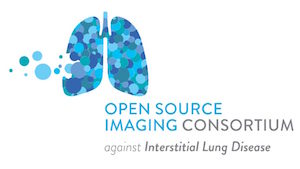 An international group of leading experts and advocates in the fight against idiopathic pulmonary fibrosis (IPF), fibrosing interstitial lung diseases (ILDs), and other respiratory diseases including emphysematous conditions announced today the formation of the Open Source Imaging Consortium (OSIC). This global, not-for-profit organization is a cooperative and open source effort between academia, industry and philanthropy to enable rapid advances in the detection and diagnosis of these conditions through digital imaging and machine learning.
An international group of leading experts and advocates in the fight against idiopathic pulmonary fibrosis (IPF), fibrosing interstitial lung diseases (ILDs), and other respiratory diseases including emphysematous conditions announced today the formation of the Open Source Imaging Consortium (OSIC). This global, not-for-profit organization is a cooperative and open source effort between academia, industry and philanthropy to enable rapid advances in the detection and diagnosis of these conditions through digital imaging and machine learning.
- Login to post comments